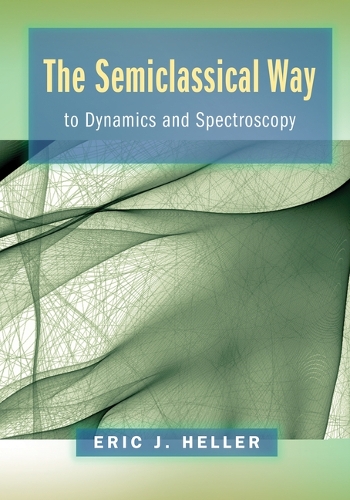
The Semiclassical Way to Dynamics and Spectroscopy
(Hardback)
Publishing Details
The Semiclassical Way to Dynamics and Spectroscopy
By (Author) Eric J. Heller
Princeton University Press
Princeton University Press
14th August 2018
United States
Classifications
Tertiary Education
Non Fiction
Spectrum analysis, spectrochemistry, mass spectrometry
Dynamics and statics
Quantum and theoretical chemistry
530.12
Physical Properties
Hardback
472
Width 178mm, Height 254mm
Description
A graduate-level text that examines the semiclassical approach to quantum mechanics Physical systems have been traditionally described in terms of either classical or quantum mechanics. But in recent years, semiclassical methods have developed rapidly, providing deep physical insight and computational tools for quantum dynamics and spectroscopy.
Reviews
"This thought-provoking and unique presentation of the semiclassical approach to quantum physics is by a grandmaster of the subject. All the explanations are original and the illustrations are beautiful. The subject deserves to be better known to researchers in physics and chemistry."Michael Berry, University of Bristol
"This book captures a lifetime of research, achievement, and deep understanding of the semiclassical approach to quantum mechanics. I know of no volume that covers the same eclectic mix of topics, and Heller's insights are invaluable. A heroic undertaking, this book will be a tremendous boon to many research fields."Kieron Burke, University of California, Irvine
"Among the books on quantum mechanics, this one is unique due to the originality of its content, presentation, and interpretation of the results. Heller succeeds in demonstrating remarkable and surprising connections between classical and quantum mechanics, which allows him to explain seemingly complicated quantum-mechanical phenomena in very simple terms. Filling an important gap in the field, this book will be welcome by specialists and nonspecialists alike."Jiri Vanicek, cole Polytechnique Fdrale de Lausanne
Author Bio
Eric J. Heller is the Abbott and James Lawrence Professor of Chemistry and Professor of Physics at Harvard University and a member of the National Academy of Sciences. He is the author of Why You Hear What You Hear (Princeton).
